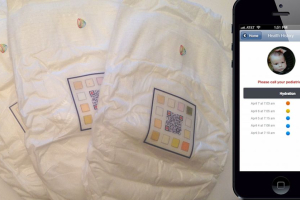With advancements in technology and the lagging behind of efficient healthcare, it is not surprising that e-health, or the use of information and communication technologies (ICT) for health, is coming to the fore this 2017.
E-health, like Uber, Facebook, Airbnb and Skyscanner, is a disruptive industry that can change the course of how healthcare is traditionally addressed. From system-focus, e-health is aimed at putting the focus back on patients, where patients are going to say, "Give me the tools that I need for my care" as Dr. Rajiv Shah, CEO of MyMeds, says.
Dr. Shah adds that the move of e-health is all about disruption. While the word 'disruption' used to define chaos; today, it "has taken a completely different meaning... (that) we don't think of problems. We think of solutions."
He says that back in the day, doctors come to patients when they are sick. Along the way, patients had to visit doctors when they are sick, and the process is not as straightforward with calling the doctor's office, booking for an appointment, waiting at the office to be seen for 5-10 minutes, then visiting a pharmacist. When things go wrong, patients have to go through the whole process all over again.
E-health is about going back to that time when patients are able to get the help that they need when they need it the most. Dr. Shah says, "The saying 'Doctors know best is long gone... Now, patients are seen as partners."
Dr. Daniel Kraft, Founder and Executive Director of Exponential Medicine, says that with e-health, "You will be the new CEO of your health."
Kraft explains that e-health will be transforming these six main drawbacks of the current, and often inefficient, healthcare system: 1) basis of care, from volume based to value based; 2) payment, from fee-for-service to outcome based; 3) incentives, from volume to value; 4) focus, from acute episodes to populations; 5) role of provider, from single episode to care continuum; and, 6) information, from retrospective to predictive.
These changes are said to be achieved through innovations that can be afforded by majority of the population. These innovations can range from devices that result to "quantified health" where calories are measured as food and drinks are consumed, where a tweet is automatically sent to friends when a weigh-in is made, and where a parent is notified once a baby's diaper is full; to "insideables" where pills can be consumed in place of an endoscopy.
Dr. Shah of MyMeds says that e-health, moving forward, combines health's 'dream team' into one app or login that users can have access to. The 'dream team' is composed of the patient, specialist, health coach, physician, nurse, pharmacist, and family caregiver.

















